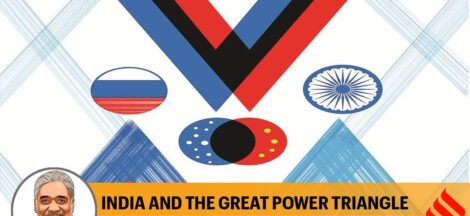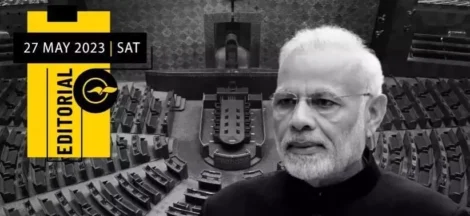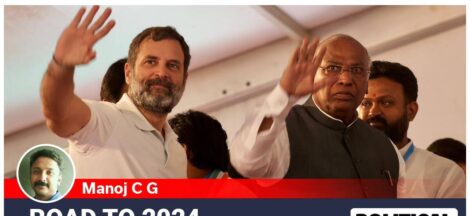By
Amulya Ganguli
Every act of terrorism carries the
threat of war. The Pakistani attacks on parliament in 2001 and on Mumbai in
2008 were followed by the possibility of a major conflict between the two
nuclear-armed neighbours. It was undoubtedly the menace of the ultimate,
Holocaust weapons which made the two countries draw back from the brink of the
precipice at the time.
It is unclear whether the present
crisis will see a similar turn of events. The fact that this is an election
year in India complicates the scene. The ruling party may feel that the absence
of a muscular response to the Pulwama tragedy will hurt its image even if the
opposition parties have vowed to stand by it.
At the same time, there is probably
diplomatic pressure on it as well to prevent any dangerous escalation of the
situation in a region which has sometimes been described as a “nuclear
flashpoint”. Although the US has assured India of its support for an act of
“self-defence”, it is doubtful whether this term covers a full-scale war.
In all probability, it is a green
signal for something like a surgical strike or precision bombing of targets for
which the air force is said to be preparing. It is not impossible that among
the targets such a focused operation will have on its radar is the
Jaish-e-Mohammed’s (JeM) headquarters in Bahawalpur in Pakistan.
Since the JeM was behind the Pulwama
massacre, a aerial strike on its den can be construed as an act of
“self-defence” if only because the JeM must be having other heinous plans up
its sleeve. Since America has consistently asked Pakistan to deny safe havens
to terrorists, it cannot but guardedly approve of any targeting of Bahawalpur
although it is unquestionably an act of war.
As such, there will be pressure on
Pakistan from the US not to respond. Even China, notwithstanding its fondness
for the JeM chief, Masood Azhar, will be wary of a serious outbreak of
hostilities lest they put an end to its Belt and Road Initiative.
However, for India, a covert operation
is perhaps the best option. It is a mystery why India has not carried out more
such undercover hit-and-run attacks on terror camps and individual terrorists
since this is the only way that Pakistan’s proxy war can be effectively
countered, as a war with or without the use of nuclear weapons will be
disastrous for both the countries.
Is it because of a sense of being a
gentleman who cannot adopt such “mean” tactics that India has desisted from
playing James Bond ? However, it is possible that the covert initiatives have
not been taken because India’s “deep assets” or spies in Pakistan were
deactivated out of a misplaced sense of friendliness towards Pakistan by some
prime ministers, as the BJP’s former defence minister Manohar Parrikar once
said. Since, as Parrikar said, it takes 20/30 years to build up the deep
assets, it is obvious that a secret mission against JeM is not immediately
possible, but it is an option which India has to keep in mind.
The advantage of such a mission is
that the perpetrators cannot be directly identified or blamed as in the case of
an aerial attack or a missile strike although everyone in the world will know
who is behind it. But the attackers will earn as much plaudits at home as an
open surgical strike.
Apart from such military operations by
either soldiers or spies, India may well have to consider other alternatives.
These include breaking off diplomatic relations with Pakistan because it is of
no use maintaining such formal contacts with an overly and unrepentantly
hostile country. There is little that India can gain by maintaining high
commissions and consulates in Pakistan.
The snapping of diplomatic ties can be
accompanied by ending trade between the two countries and putting an end to
cultural exchanges or what has been called people-to-people contacts. The
playing of cricket and other games will also have to be called off although
India may still have to adhere to the schedules prepared by world bodies for
such sporting encounters.
Pakistan is not India’s only enemy in
the region. China is another. It is obvious that Pakistan wouldn’t have been so
emboldened to persist with its tactics of bleeding India with a thousand cuts
year after year if it wasn’t sure of Chinese support.
Given this unholy alliance between the
two “iron brothers”, India may well have to revise the “Wuhan spirit” by
telling China that friendship is a game which both the sides will have to play.
If China continues to tilt heavily towards Pakistan, India will have to
consider whether it will have to take a fresh look at its Tibet policy.
India may also have to ramp up its
ties with Taiwan, put the squeeze on Chinese businesses In India and side with
the rest of the world on the oppression of the Uighur Muslims by China. For far
too long has India tried to play fair with the two all-weather friends driven
by an intense antipathy towards India. It’s time to make a new beginning. (IPA Service)
The post Modi Has To Give A Relook At His Pak Strategy appeared first on Newspack by India Press Agency.


